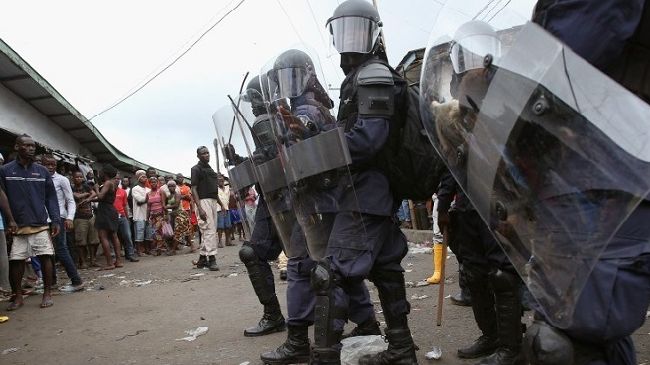US hyping up Ebola to extract oil from West Africa: Analyst

The United States is using the Ebola outbreak as a smokescreen to go on with its plans for extracting natural gas and oil from West Africa, an investigative journalist says.
The Ebola “hype is to distract everyone from what is actually happening” in West Africa, Susanne Posel, chief editor of Occupy Corporatism, told Press TV on Thursday.
“What is actually happening in Liberia is they [the US] found out they have natural gas and petrol a hundred years worth or more. They want to extract it and they don’t want anyone to give them any problems,” she noted.
She made the remarks as the Obama administration is deploying thousands of troops to West Africa to help the countries hit by the deadly epidemic control the viral disease.
Posel said that the US mainstream media are hyping up the Ebola epidemic because, “It makes a hell of a lot of sense to completely confuse people while you are sending troops in to secure an area that a petrol company [ExxonMobil] is going to extract natural gas and [oil].”
The 4000-strong US force deploying to Liberia–one of the three epicenters of the Ebola outbreak– will be joined by hundreds of British troops in a mission that Washington says is aimed at building medical centers and training healthcare workers.
“I’m really concerned about the Liberians because I think this is not exactly what is happening to them,” Posel said.
The International Monetary Fund (IMF) and the World Bank (WB) have proposed plans to secure the extraction of natural gas and oil in the Ebola-hit regions.
“There is a country that has natural resources that the IMF, World Bank, the United States and the UK want control over,” Posel said, referring to Liberia.
The recent Ebola outbreak started in late 2013 in Guinea and rapidly spread to two more West African countries, Sierra Leon and Liberia.
With no proven treatment and no vaccine, the Ebola epidemic could affect 5,000 to 10,000 new people per week, according to the World Health Organization (WHO).







